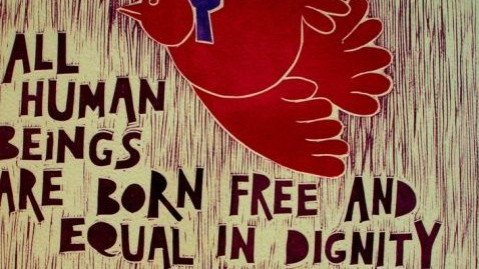UN office publishes detailed human rights guidance for banks

The United Nations Office of the High Commissioner for Human Rights (OHCHR) on Monday published a 16-page interpretive advice note on the banking sector’s responsibilities for managing the human rights impacts of its finance. The advisory note – the OHCHR’s most detailed guidance to the banking sector to date – comes in advance of a meeting next Monday 19th June organised by the Thun Group, an informal grouping of banks on human rights, at which a recent controversial paper by the group of banks will be discussed.
The interpretive guidance is a response to a request by BankTrack for advice on how the UN Guiding Principles on Business and Human Rights (“the UN Guiding Principles”) should be applied in the context of the banking sector.
BankTrack’s request to the OHCHR followed a “Discussion Paper” released by the Thun Group in January this year, which was strongly criticised for unilaterally declaring that banks would not generally be considered, under the UN Guiding Principles, to be causing or contributing to adverse human rights impacts arising from their clients' operations. This apparent attempt to play down banks’ human rights responsibilities contradicted previous advice from as early as 2013, from the OHCHR and others, and led Professor Ruggie, the author of the UN Guiding Principles, to publicly state that he was “deeply troubled” by the paper.
The new interpretive advice from the OHCHR:
- reaffirms that banks can contribute to adverse human rights impacts through their finance, for example if its actions and decisions influence a client in such a way as to make an impact more likely. In such circumstances, the bank may be responsible for remediating the human rights impact together with its client. A bank may also be directly linked to a human rights impact through its finance, without contributing to it, in which case it would not be responsible for remedying the impact, although it may take a role in doing so. It also makes clear that neither case involves a shifting of responsibility from the client onto the bank.
- elaborates on the factors influencing the nature of a bank’s involvement with an adverse human rights impact, including whether the bank was incentivising or facilitating harm, and the quality of its human rights systems and due diligence processes. It also describes how banks can move from being directly linked to an instance of human rights abuse to contributing to it, if it “over time fails to take reasonable steps to seek to prevent or mitigate the impact”.
- discusses the responsibility of banks to remediate human rights impacts when they identify they have contributed to them, and their separate responsibility to establish or participate in a grievance mechanism so that people whose rights have been affected by the bank can seek remedy. These are areas which have been relatively little discussed by the banking industry – indeed, the Thun Group of banks committed in 2014 to “explore options for addressing the third pillar (of the UN Guiding Principles), i.e. access to remedy”, but took no further action to deliver on this. BankTrack research has found no evidence that any private sector bank has yet developed a grievance mechanism which comes close to meeting the UN’s guidelines.
The advice of the OHCHR is likely to inform relevant multi-stakeholder processes, including the OECD’s project on Responsible Business Conduct in the finance sector, and the Dutch Banking Sector Agreement on human rights. It should be read carefully by anyone within the banking sector with responsibility for sustainability and human rights.
Download the OHCHR guidance note here
Download the OHCHR’s cover letter here
Download BankTrack’s letter to the OHCHR here
